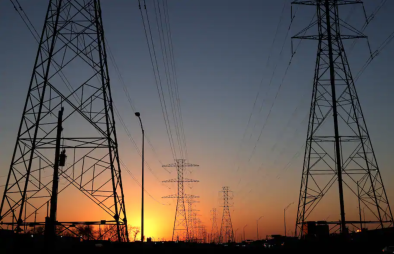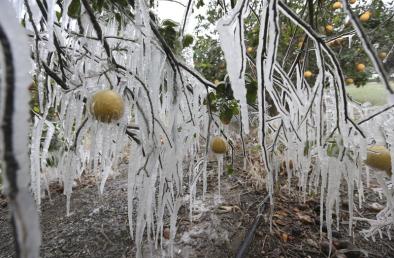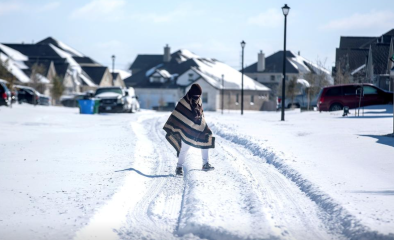Science Source
Strong increase in convective precipitation in response to higher temperatures
- Highlights that precipitation changes can affect society more directly than variations in most other meteorological observables but is difficult to characterize because of fluctuations on nearly all temporal and spatial scales
- States that the intensity of extreme precipitation rises markedly at higher temperature, faster than the rate of increase in the atmosphere’s water-holding capacity, termed the Clausius–Clapeyron rate
- Summarizes state of the science which holds that the invigoration of convective precipitation (such as thunderstorms) has been favoured over a rise in stratiform precipitation (such as large-scale frontal precipitation) as a cause for this increase, but the relative contributions of these two types of precipitation have been difficult to disentangle
- Combines large data sets from radar measurements and rain gauges over Germany with corresponding synoptic observations and temperature records, and separate convective and stratiform precipitation events by cloud observations
- Finds that for stratiform precipitation, extremes increase with temperature at approximately the Clausius–Clapeyron rate, without characteristic scales
- Finds in contrast that convective precipitation exhibits characteristic spatial and temporal scales, and its intensity in response to warming exceeds the Clausius–Clapeyron rate
- Concludes that convective precipitation responds much more sensitively to temperature increases than stratiform precipitation, and increasingly dominates events of extreme precipitation
Related Content
Science Source
Warm Arctic, Cold Continents: A Common Pattern Related to Arctic Sea Ice Melt, Snow Advance, and Extreme Winter Weather
Judah Cohen, Justin E. Jones, Jason C. Furtado et al
Headline

Feb 23, 2021 | Washington Post
Deadly Texas blackout shows our vulnerability to coming climate extremes
Headline

Feb 19, 2021 | Associated Press
EXPLAINER: Topsy-turvy weather comes from polar vortex
Headline

Feb 19, 2021 | Reuters
Freak cold in Texas has scientists discussing whether climate change is to blame


